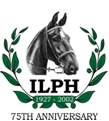 |
Encouraging
Discussions with the European Commission
|
ILPH
representatives, Jo White, Campaigns Manager and Keith Meldrum,
Adviser on European Affairs have recently returned from very positive
discussions with EC representatives in Brussels.
The
meeting, kindly hosted and arranged by East Midlands MEP Roger Helmer,
was attended by Martin Territt of Commissioner Byrne's cabinet and
Andrea Gavinelli, author of the report on the Review of Live Animal
Transportation, on which new EU legislation will be based.
The
aims of the meeting were to discuss the progress of the Commission's
proposal to update the current Animal Transportation Directive,
to highlight ILPH concerns and to present new recommendations for
welfare improvements. ILPH emphasis is on:
"
individual partitioning;
" the duration of journeys;
" 24 hour rest on entry into the EU.
"One
of the most positive aspects to come out of the meeting," comments
Jo White, "is the news that the Commission is committed to
single stalls/partitions as part of better quality travelling conditions
for equines. This will be a significant welfare measure that should
help to reduce the injuries suffered by equines in transport."
Although
the Commission is against the 8 hour journey limit, the issue of
journey times is key to the new Directive, and a reduction from
the current maximum of 24 hours looks likely.
Of
serious concern to the ILPH are the distances travelled by equines
before entering the EU as many of them may have travelled for days
from their point of origin. The ILPH wants to see the implementation
of a compulsory 24 hour off-vehicle rest period on entry to the
EU. It is not the first time that they have put this recommendation
to the Commission, but on this occasion their response was encouraging.
Martin
Territt said that a 24-hour rest period for slaughter horses entering
the EU is still very much on the table, and that the EC is sympathetic
to the case for better conditions during the journey and for meaningful
rest periods. They want to improve the standards at watering and
feeding stations, establish improved bio-security, as well as developing
staff training and journey plans.
Anybody
wishing to find out more on how they can help the ILPH with its
work on slaughter horse transportation should phone 0870 366 6928
or write to ILPH, Anne Colvin House, Snetterton, Norfolk, NR16 2LR
asking for a Transportation Information Pack.
ILPH
Recommendations for the Transportation of Equines
Early
in 2002, the ILPH drew up 10 recommendations for inclusion in any
amended legislation for horses intended for slaughter. These points
relate to the main problems we have seen with the slaughter horse
trade following many years of research and campaigning, and are
as follows:
1.
Decreased journey times/decrease time on the vehicle to 18 hours.
This will consist of eight hours travel, followed by two hours for
feeding and watering, then a further eight hours before the end
of that journey after which time the horses should be unloaded and
rested for at least 24 hours A veterinary certificate would be required
at the start of a new journey, stating the equines are fit to travel.
2. Compulsory 24-hour rest on entry to the EU.
3. Individual partitions, so that horses travel separately.
4. Improved vehicle construction to permit adequate provision of
feed and water and temperature control.
5. Thorough training of transporters and staff involved in handling
equines being transported, in order to minimise distress.
6. Detailed journey plans for the entire journey, prior to entering
the EU and on entering the EU.
7. Thorough veterinary inspection at or before the start of a new
journey.
8. Third countries to adopt and enforce EU legislation.
9. Compliance with the directive in its entirety by each EU member
country.
10. Assistance for setting up abattoirs in source countries. To
encourage a move to a carcass only trade.
www.ilph.org
.
|







